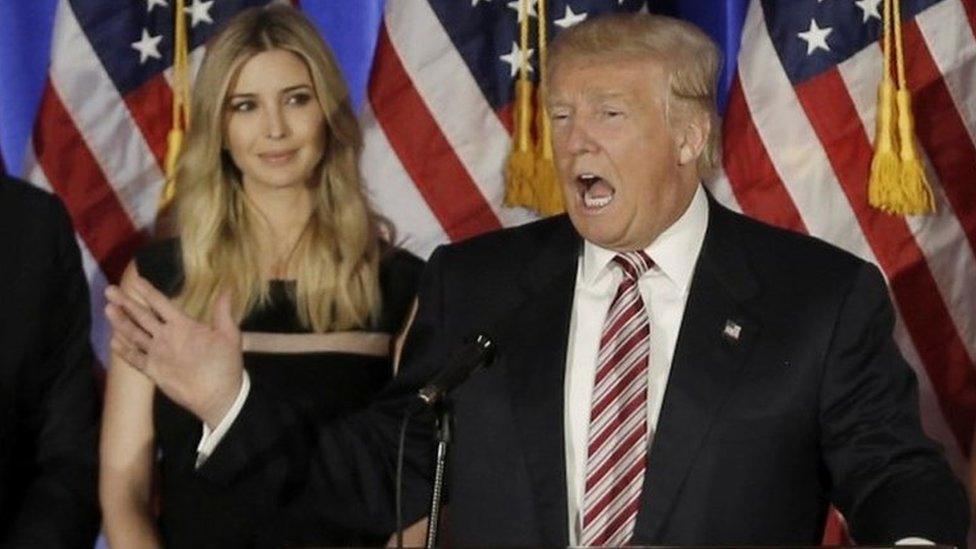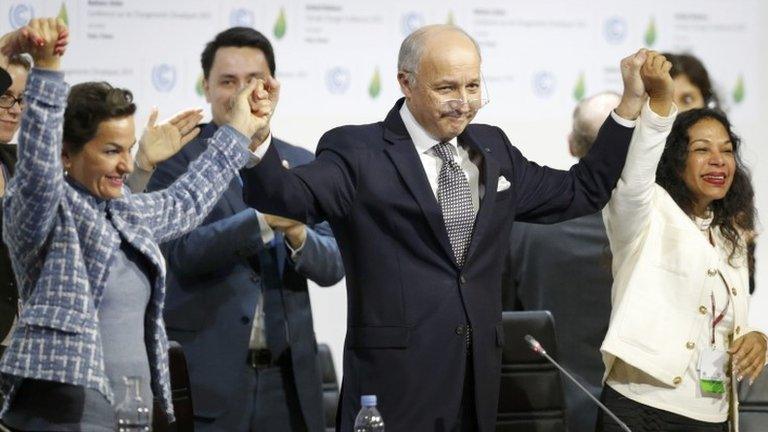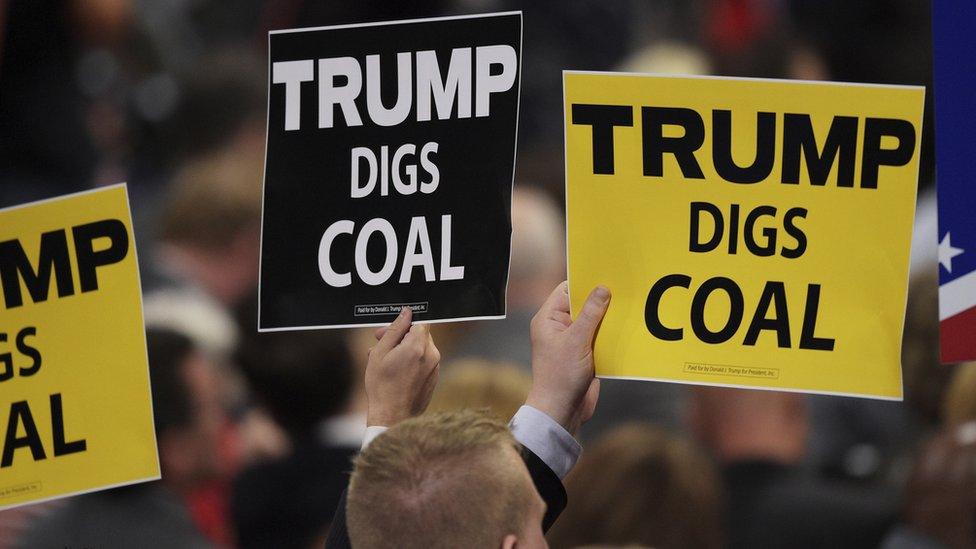Donald Trump win 'won't sway world on climate'
- Published

The election of the climate sceptic Donald Trump as US president will not sway UK leadership on the issue, a minister has said.
Mr Trump, reported to believe climate change is "mostly bunk", has threatened to withdraw from the UN climate deal.
Environment Minister Nick Hurd admitted the Trump victory was "a very big rock chucked in the pool".
But he said the world - including the UK - would continue working to curb emissions without the US if necessary.
Mr Hurd also stressed that it was impossible to be sure at the moment exactly what Mr Trump's policies would be.
Mr Trump's supporters say rules on climate and energy are stifling business.
Details of his climate policy are not yet clear, but his team has talked about boosting coal, opening new oil pipelines, and allowing mining on public wilderness or drilling in the Arctic.
Mr Hurd told the cross-party Business, Energy and Industrial Strategy Committee that President Obama had led the way in partnership with China towards the Paris climate deal at the end of 2015.
Its commitments, agreed to by almost 200 countries, included:
Keeping the global temperature rise to two degrees Celsius above pre-industrial levels - and preferably as low as 1.5 degrees
Peaking greenhouse gas emissions as soon as possible
$100bn (£82bn) a year in climate finance for developing countries by 2020, with a commitment to further finance in the future
Mr Hurd told MPs: "The progress that's been made in terms of the momentum behind the international process and the seriousness [with] which this is taken - not just by governments but by the private sector and capital markets - [means] we're in a completely different place.
"We have seen a step change in momentum.
"The Trump election is a challenge to that, but there has been a gear change in 2015-16, and it's very hard to overstate the importance of the Paris agreement - if countries do what they say they want to do."
He said the private sector was now mostly supportive of the low-carbon economy, and wanted to seize the economic opportunity it offered.
The move in this direction globally was now irreversible, he said.
The key was to drive down the cost of the transition.
Mr Hurd said the UK government would keep its commitment to long-term CO2 targets and its long-delayed emissions reduction plan would be published before the end of March.
Mr Hurd admitted the UK was lagging in its plans for cleaning up heating and transport.
He said: "We have seen the future of transport, and the future is electric."
But he acknowledged that the government needed to do more accelerate the pace of change.
Questioned on climate change and Brexit, he said many questions were unresolved:
Should the UK keep EU rules on energy?
Should it continue to negotiate globally in the EU bloc?
Should it stay within the flawed emissions trading scheme for industry or use Brexit to devise a better scheme for the UK?
Follow Roger on Twitter @rharrabin
- Published13 December 2015

- Published2 January 2017
